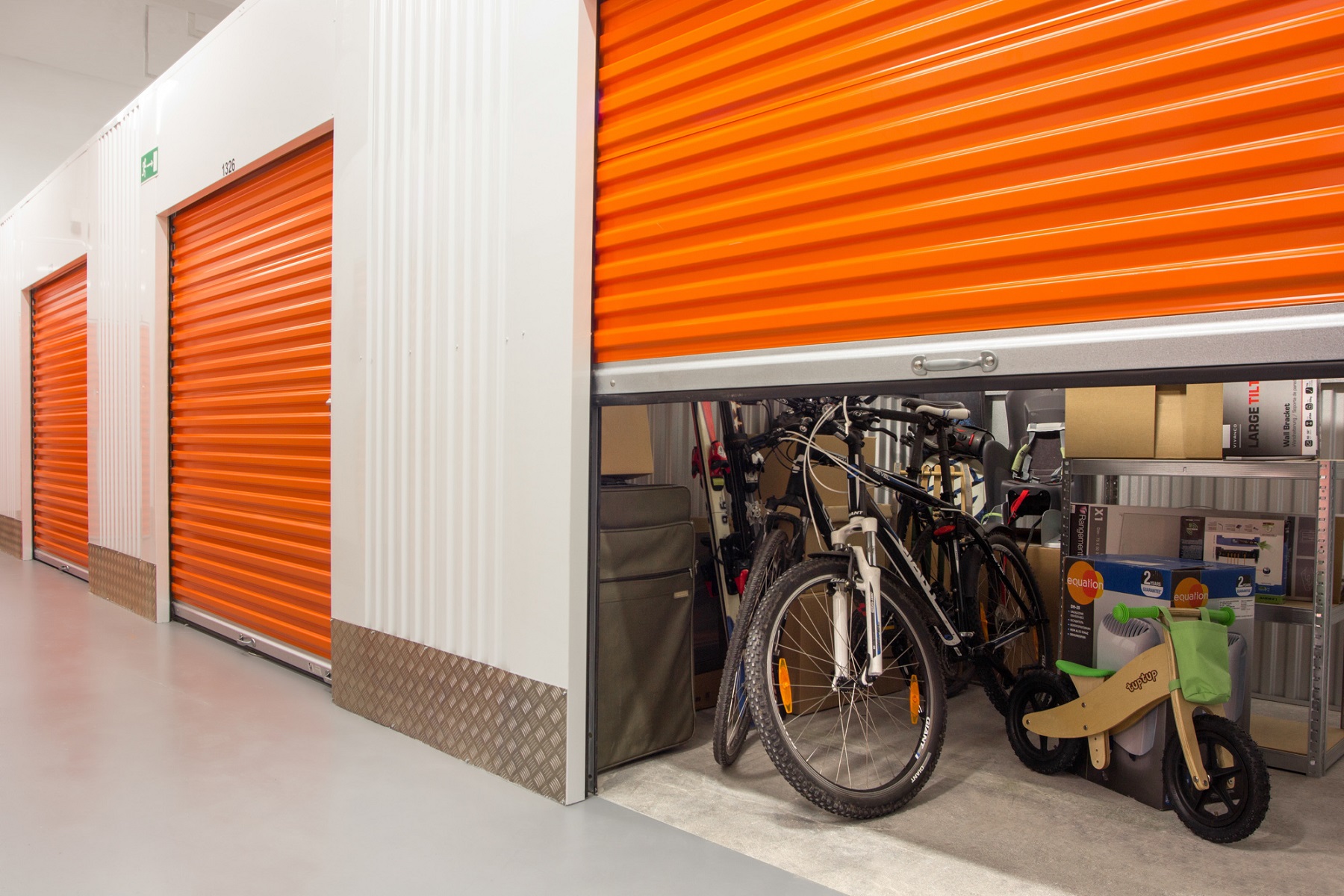

Articles
What Is Self Storage
Modified: November 1, 2024
Looking for storage ideas? Discover the benefits of self storage and find creative solutions to declutter your space with STORAGE IDEAS.
(Many of the links in this article redirect to a specific reviewed product. Your purchase of these products through affiliate links helps to generate commission for Storables.com, at no extra cost. Learn more)
Introduction
Welcome to the world of self storage! Whether you are moving to a new home, decluttering your living space, or simply in need of extra storage for your belongings, self storage facilities offer a convenient and secure solution. In this article, we will explore what self storage is, its benefits, and how to choose the right facility for your needs.
Self storage refers to the renting of individual storage units or lockers within a larger facility. These units are typically secured with a lock and key, providing you with exclusive access to your stored items. Self storage facilities come in various sizes and offer a wide range of amenities to cater to different storage needs.
The concept of self storage has been around for several decades, with its roots traced back to the 1960s in the United States. Initially, these facilities were used primarily by businesses and commercial entities to store excess inventory, equipment, and documents. However, the demand for personal storage solutions quickly grew, leading to the development of self storage facilities that catered to individuals as well.
There are various reasons why people choose to utilize self storage facilities. One common reason is during a move. Whether you are downsizing, renovating, or relocating, self storage provides a temporary space to store your belongings until you are ready to settle into your new home.
Additionally, self storage offers a solution for those who have limited space in their current living quarters. Perhaps you have accumulated too many belongings over the years or need to create a more organized living space. Self storage allows you to securely store items that are not in regular use, freeing up valuable space in your home.
Another advantage of self storage is its flexibility. You can rent a unit for as long as you need, whether it is for a few weeks, months, or even years. This flexibility ensures that you only pay for the storage you require, without being tied down to long-term contracts.
Self storage units come in various types, ranging from small locker-sized spaces to larger units that can accommodate the contents of an entire household. It is important to assess your storage needs beforehand and choose a unit size that best fits your requirements.
When it comes to selecting a self storage facility, several factors should be considered. These include location, security measures, accessibility, cleanliness, and customer reviews. It is crucial to do thorough research and visit the facility in person to ensure it meets your expectations.
In the following sections, we will delve deeper into the benefits of self storage, security measures implemented by storage facilities, tips for packing and organizing your unit, insurance options, pricing considerations, and frequently asked questions. By the end of this article, you will have all the necessary knowledge to make informed decisions about utilizing self storage and maximizing its benefits.
Key Takeaways:
- Self storage offers a flexible and secure solution for various storage needs, providing extra space, convenience, and peace of mind for individuals and businesses alike.
- Understanding the costs, security measures, and insurance options associated with self storage is crucial for making informed decisions and optimizing the storage experience.
Read more: What Are Racks
Definition of Self Storage
Self storage, also known as storage units or mini storage, refers to a service that provides individuals and businesses with secure spaces for storing their belongings. It is a convenient and flexible option for those who require temporary or long-term storage solutions.
Self storage facilities are typically equipped with numerous units or lockers of various sizes. These units are rented to customers on a monthly basis and can be used to store a wide range of items, including furniture, appliances, business inventory, documents, vehicles, and personal belongings.
One of the key features of self storage is that customers have exclusive control and access to their storage units. They are given a lock and key, allowing them to securely store and retrieve their items as needed. This enables individuals to have peace of mind knowing that their belongings are stored in a safe and private space.
Self storage units vary in size, ranging from small lockers that can fit a few boxes to larger units that can accommodate the contents of an entire home. This allows customers to choose the unit size that best suits their storage needs. Additionally, many self storage facilities offer climate-controlled units, which help protect sensitive items from extreme temperature fluctuations.
Self storage units are typically rented on a month-to-month basis, providing customers with flexibility in terms of duration. Whether it is a short-term storage need during a move or a long-term solution for storing items that are not in regular use, self storage offers individuals the freedom to determine how long they need the storage space.
Self storage facilities are designed to provide convenience to customers. They are often strategically located and easily accessible, allowing individuals to retrieve their items whenever they need them. Many facilities offer extended access hours, including evenings and weekends, to accommodate various schedules.
In recent years, self storage has evolved to offer additional services beyond storage units. Some facilities provide moving supplies and equipment for rent, such as moving trucks, boxes, and packing materials. Others offer onsite amenities like loading docks, carts, and elevators to facilitate the moving and storing process.
Overall, self storage provides individuals and businesses with the flexibility and convenience of having their own secure space to store their belongings. It is a reliable solution for those who need extra storage capacity, whether it is for personal reasons or to meet the storage demands of a growing business.
Brief History of Self Storage
The concept of self storage dates back to the 1960s in the United States, and its origins can be traced to Texas. The pioneer of modern self storage is considered to be Russ Williams, who founded the first self storage facility in Odessa, Texas, in 1964.
Initially, self storage facilities were primarily used by businesses and commercial entities to store excess inventory, equipment, and documents. The early facilities consisted of warehouses or industrial buildings that were converted into storage spaces. These spaces were then divided into individual units or lockers that customers could rent.
Throughout the 1970s and 1980s, the demand for personal storage solutions began to grow. People started utilizing self storage for various reasons, including moving, downsizing, renovating, and traveling. As the market expanded, purpose-built self storage facilities started to emerge.
In the 1990s, self storage experienced significant growth and became more accessible to the general public. The industry saw advancements in facility design, security features, and customer amenities. Self storage facilities started offering a wider range of unit sizes and implementing climate control systems to cater to the storage needs of different items and businesses.
The popularity of self storage continued to rise in the early 2000s, driven by factors such as urbanization, changing lifestyles, and the rise of e-commerce. Urban dwellers found self storage to be a valuable solution for their limited living spaces. Additionally, businesses recognized the benefits of using self storage to manage their inventory, archives, and seasonal goods.
Along with the growth in demand, the self storage industry became more competitive. New players entered the market, offering innovative services and features to attract customers. This led to the introduction of advanced security systems, electronic access controls, 24-hour surveillance, and enhanced customer service.
In recent years, advancements in technology have further shaped the self storage industry. Online platforms and mobile apps have made it easier for customers to find and rent storage units, make payments, and manage their accounts. The integration of automation and digital systems has streamlined facility operations, improving efficiency and customer satisfaction.
Today, self storage has become a multi-billion-dollar industry around the world, with facilities available in various countries. The modern self storage facility offers a range of conveniences, including extended access hours, month-to-month rentals, and additional services like packing supplies, moving trucks, and insurance options.
The evolution of self storage over the years reflects the increasing demand for flexible storage solutions. As people’s lifestyles and needs continue to change, the self storage industry will likely adapt and innovate to meet the requirements of a dynamic and storage-conscious society.
Reasons for Using Self Storage
Self storage facilities have become a popular solution for individuals and businesses alike. People turn to self storage for various reasons, benefiting from the convenience, flexibility, and security it offers. Here are some common reasons why people choose to utilize self storage:
1. Moving: Moving can be a stressful and chaotic process. Self storage provides a temporary space to store your belongings during the transition. Whether you are downsizing or in between homes, having a secure storage unit allows you to safely store your items until you are ready to settle into your new place.
2. Decluttering: Many homes and offices become cluttered over time, making it difficult to navigate and maintain a clean and organized space. Self storage offers a solution by providing an off-site location to store items that are not in regular use. This helps create a more spacious and clutter-free living or working environment.
3. Renovating: When undergoing renovations or remodeling projects, it is common to need temporary storage for furniture, appliances, and other belongings. Self storage allows you to protect your items during construction and ensures they remain easily accessible once the renovations are complete.
4. Seasonal Storage: Many individuals require storage space for seasonal items such as holiday decorations, sports equipment, or seasonal clothing. Self storage provides a convenient option to store these items when they are not in use, freeing up valuable space in your home or garage.
5. Business Storage: Businesses often require additional storage space for excess inventory, documents, equipment, or promotional materials. Self storage provides a cost-effective solution for businesses to store these items securely and conveniently.
6. Travel or Deployment: For those who are traveling long-term or have military deployments, self storage offers a secure place to store their belongings. It provides peace of mind knowing that their items are safe and protected until they return.
7. Hobby or Collectibles Storage: Hobbies and collections can quickly take up a significant amount of space. Whether it’s a collection of comic books, model trains, or musical instruments, self storage provides a dedicated space to store and protect these items.
8. Temporary Space Solution: Some individuals may need temporary storage during transitional periods, such as students during summer breaks or individuals in temporary living arrangements. Self storage offers a flexible and short-term solution for storing belongings in these situations.
9. Business Operations: Self storage units can also serve as an extension of a business operation. For example, e-commerce businesses can utilize storage units as pick-up and distribution centers or as a solution for storing marketing materials and promotional items.
10. Peace of Mind: Ultimately, using self storage provides peace of mind. Knowing that your belongings are stored in a secure and monitored facility allows you to focus on other aspects of your life or business without worrying about their safety.
Self storage offers a versatile and reliable solution for various storage needs. Whether you are going through a life transition, need additional space, or require storage for business purposes, self storage facilities provide the convenience and security to meet those requirements.
Types of Self Storage Units
Self storage units are available in various sizes and configurations, allowing individuals and businesses to choose the type that best suits their storage needs. Understanding the different types of self storage units can help you determine the right option for your belongings. Here are the most common types:
1. Indoor Units: Indoor units are typically located within a larger building, providing additional protection from the elements. These units are accessed through a shared hallway or corridor and are often climate-controlled, maintaining a consistent temperature and humidity level. Indoor units are ideal for storing sensitive items such as furniture, electronics, artwork, and documents.
2. Drive-Up Units: Drive-up units, also known as outdoor or ground-level units, are accessible directly from outside the facility. They feature roll-up doors that allow for easy loading and unloading of items. Drive-up units are popular among individuals who require frequent access to their stored belongings or need to store larger items such as vehicles, furniture, or equipment.
3. Temperature-Controlled Units: Temperature-controlled units are specially designed to maintain a consistent temperature range within the storage space. These units are ideal for storing items that are sensitive to extreme temperatures, such as electronics, wooden furniture, antiques, artwork, and musical instruments. Temperature-controlled units help prevent damage caused by heat, cold, or humidity fluctuations.
4. Outdoor Units: Outdoor units are similar to drive-up units but are typically not protected by indoor structures. These units are exposed to the elements and do not offer the same level of climate control as indoor or temperature-controlled units. Outdoor units are suitable for items that can withstand temperature variations or are not as susceptible to environmental conditions.
5. Portable Storage Containers: Portable storage containers are a unique type of self storage that provides flexibility and convenience. These containers are delivered to your location, where you can load your belongings at your own pace. Once filled, the container is transported to a secure storage facility. Portable storage containers are a popular choice during moves, renovations, or when additional storage space is needed temporarily.
6. Vehicle Storage: Vehicle storage units are specifically designed to accommodate vehicles such as cars, motorcycles, boats, RVs, or trailers. These units can be indoor or outdoor, and some facilities offer covered parking or designated parking spaces for larger vehicles. Vehicle storage units provide a secure and protected space to keep your vehicles when they are not in use.
7. Wine Storage: Wine storage units are specially designed to provide the optimal conditions for storing wine collections. These units offer climate control and humidity regulation to preserve the quality and flavor of the wine. Wine storage units typically have specific temperature ranges and may include additional features like wine racks and specialized security systems.
It is important to assess your storage needs and consider the type of items you plan to store when choosing a self storage unit. Factors such as accessibility, climate control requirements, and the size of your belongings will help determine which type of unit will best suit your needs. Consulting with the storage facility staff can also provide valuable guidance in selecting the appropriate unit for your storage requirements.
Read more: What Is A Cellar
Choosing the Right Self Storage Facility
When it comes to selecting a self storage facility, it is important to consider several factors to ensure that you choose the right one for your storage needs. Here are some key aspects to consider when making your decision:
Location: Choose a storage facility that is conveniently located near your home or place of business. Accessibility is crucial, especially if you need frequent access to your stored items. Consider the proximity to major roads, public transportation, and your regular routes to ensure ease of access.
Security Measures: Look for a facility that prioritizes security. Check if the facility has well-lit premises, 24-hour surveillance cameras, secure perimeter fencing, and gated access. Inquire about any additional security measures such as on-site staff, individual unit alarms, and secure locks. A secure facility will give you peace of mind that your belongings are protected.
Cleanliness and Maintenance: Cleanliness is essential in a self storage facility. Inspect the facility for cleanliness and proper maintenance. A clean facility suggests that the management takes care of the premises and your belongings will be kept in a clean and well-maintained environment.
Unit Sizes and Availability: Consider the range of unit sizes available at the facility and choose one that suits your needs. Whether you need a small locker or a larger unit, having various size options ensures that you only pay for the space you require. Additionally, check the availability of units to ensure that there will be a unit available when you need it.
Amenities and Services: Consider the amenities and services offered by the facility. Some facilities may provide dollies, carts, or loading areas to assist with the moving process. Others may offer packing supplies, truck rentals, or even assistance with organizing and packing your unit. These additional services can make your storage experience more convenient and efficient.
Customer Reviews and Recommendations: Research online reviews and ratings of the storage facility you are considering. Customer reviews can provide insights into the facility’s reputation, customer service, and overall experience. Recommendations from friends, family, or colleagues who have used the facility can also be valuable in your decision-making process.
Insurance Options: Inquire about the insurance options available for your stored items. While storage facilities have security measures in place, it is still wise to have insurance coverage to protect against unexpected events such as theft or damage. Some facilities may offer insurance plans or can recommend reputable insurance providers.
Pricing and Contracts: Consider the pricing structure and contract terms of the storage facility. Compare prices among different facilities in your area to ensure you are getting a fair rate. Pay attention to any hidden fees, such as administrative fees or late payment charges. Read the contract carefully and understand the terms, including the rental duration and any penalties for early termination.
Customer Service: Finally, assess the level of customer service provided by the storage facility. Interact with the staff and ask any questions you may have. Friendly and knowledgeable staff can provide guidance and assistance throughout your storage experience.
By considering these factors when choosing a self storage facility, you can ensure that you select a facility that meets your needs and provides a secure and convenient storage solution for your belongings.
Benefits of Self Storage
Self storage facilities offer numerous benefits for individuals and businesses alike. Whether you need temporary storage during a move or a long-term solution for your belongings, self storage provides a convenient and secure option. Here are some of the key benefits of using self storage:
1. Extra Space: One of the primary benefits of self storage is the additional space it provides. If you have a limited living or working area, self storage allows you to store items that are not in regular use without cluttering your space. This frees up valuable square footage and creates a more organized and spacious environment.
2. Flexibility: Self storage offers flexibility in terms of storage duration. You can rent a unit for as short as a few weeks or as long as several years, depending on your needs. This flexibility allows you to adjust your storage space requirements based on your changing circumstances without being tied to long-term contracts or commitments.
3. Security and Protection: Self storage facilities prioritize the security and protection of your belongings. Reputable facilities have robust security measures in place, including surveillance cameras, gated access, and individual unit locks. With these security features, you can have peace of mind knowing that your items are stored in a safe and monitored environment.
4. Climate Control: Many self storage facilities offer climate-controlled units. These units maintain a stable temperature and humidity level, providing protection for sensitive items such as furniture, electronics, artwork, documents, and musical instruments. Climate control helps prevent damage caused by extreme temperatures, mold, mildew, and pests.
5. Organization and Convenience: Self storage allows you to organize your belongings in a systematic manner. You can categorize and label items for easy retrieval when needed. Additionally, many facilities provide amenities such as dollies, carts, and loading areas to facilitate the moving and storage process, making it more convenient and efficient.
6. Business Solutions: Self storage is not only beneficial for individuals but also for businesses. It offers a cost-effective solution for storing excess inventory, equipment, documents, and promotional materials. Self storage units can serve as an extension of a business operation, helping to streamline inventory management and create a more efficient workspace.
7. Vehicle Storage: Self storage is an excellent option for storing vehicles that are not in regular use. Whether you have a classic car, motorcycle, boat, or RV, specialized vehicle storage units can keep your vehicles safe and protected from the weather, vandalism, and theft.
8. Moving and Transition: Self storage is particularly useful during moves or transitional periods. It provides a temporary space to store your belongings as you navigate the moving process. Whether you need to store items before moving into a new home or during a renovation, self storage offers flexibility and convenience during these transitions.
9. Document Archiving: Businesses and individuals often have a need to store important documents and archives. Self storage facilities offer a secure and organized space for storing these documents, ensuring they are easily accessible when needed while freeing up office space.
10. Peace of Mind: Ultimately, self storage provides peace of mind. Knowing that your belongings are stored in a secure and monitored facility allows you to focus on other aspects of your life or business without worrying about their safety. Whether it’s sentimental items, valuable possessions, or important business inventory, self storage gives you the confidence that your belongings are protected.
With its flexibility, security, convenience, and various amenities, self storage offers a reliable solution for individuals and businesses seeking additional space and storage options. Consider the benefits mentioned above when considering self storage for your storage needs.
Self storage is a service that provides individuals and businesses with a secure space to store their belongings. It is a convenient solution for decluttering homes, storing seasonal items, or keeping inventory for businesses.
Security Measures in Self Storage Facilities
Security is a top priority in self storage facilities to ensure the protection of customers’ belongings. Reputable facilities implement various security measures to provide a safe and secure environment. Here are some common security measures you can expect to find in self storage facilities:
1. Perimeter Fencing: Many self storage facilities have perimeter fencing around the property. This fencing serves as a physical barrier to deter unauthorized access and acts as an initial line of defense.
2. Gated Access: Most self storage facilities have controlled access gates that require a personalized entry code or keycard to enter. This restricts access to only authorized individuals and helps monitor who enters and exits the facility.
3. Surveillance Cameras: Surveillance cameras are strategically placed throughout the facility to monitor activity and record any potential security incidents. These cameras provide continuous surveillance and act as a deterrent to potential criminals.
4. Lighting: Adequate lighting is crucial for maintaining a secure environment. Self storage facilities are typically well-lit, especially in common areas, hallways, and outdoor spaces. Proper lighting reduces the risk of unauthorized access and enhances overall safety.
5. Individual Unit Locks: Each storage unit is equipped with a lock, which is provided by the customer. This allows customers to have exclusive control and access to their storage units. Using a sturdy lock reinforces the security of the unit.
6. Alarms and Monitoring Systems: Some self storage facilities have alarm systems installed in individual units or throughout the facility. These alarms alert facility staff or security personnel in the event of an unauthorized entry or tampering with a storage unit.
7. On-Site Management: Many self storage facilities have on-site managers or staff who oversee the daily operations and security of the facility. On-site personnel can respond quickly to any security concerns, address customer inquiries, and ensure compliance with facility rules and regulations.
8. Access Logs: Access logs are typically maintained by self storage facilities to track the movement of customers within the facility. These logs document the date and time of entry and can be important for security investigations if any incidents occur.
9. Security Patrolling: Some facilities have security personnel who patrol the premises regularly, both during business hours and after hours. The presence of security guards can provide an extra layer of protection and help ensure the safety and security of the facility.
10. Fire Prevention and Safety: Self storage facilities often implement fire prevention and safety measures. This may include fire suppression systems, smoke detectors, and fire extinguishers to minimize the risk of fire and ensure the safety of customers and their belongings.
It is important to note that while self storage facilities employ various security measures, customers also play a role in maintaining the security of their stored items. It is recommended to use high-quality locks, keep track of who has access to your storage unit, and avoid storing extremely valuable or irreplaceable items.
Choosing a reputable and well-maintained self storage facility with robust security measures is essential for the protection of your belongings. When considering a self storage facility, inquire about their security protocols and measures to ensure that your stored items are in safe hands.
Tips for Packing and Organizing a Self Storage Unit
Packing and organizing your self storage unit efficiently can save you time, space, and hassle. By following these tips, you can make the most out of your storage space and ensure easy access to your belongings:
1. Gather Packing Supplies: Before you start packing, gather all necessary packing supplies such as sturdy boxes, bubble wrap, packing tape, markers, and furniture covers. Having the right supplies on hand will make the packing process smoother.
2. Label Everything: Clearly label each box with its contents and the room it came from. This will help you easily locate items when you need them. Consider using color-coded labels to further organize your belongings by category or priority.
3. Disassemble Furniture: Take apart any furniture that can be disassembled. This will help save space and make it easier to move and stack items inside the storage unit. Keep all screws and small parts in labeled bags, and tape them to the corresponding furniture piece or store them in a designated box.
4. Stack Heavy Items on the Bottom: When loading your unit, place heavier and bulkier items at the bottom. This provides a stable base for stacking lighter boxes on top. Be cautious not to stack heavy items too high to avoid instability and potential damage.
5. Create Aisles: It’s important to leave enough space inside the storage unit to create walkways and aisles. This allows you to easily access items at the back of the unit without having to move everything. Plan your storage unit layout in a way that maximizes space utilization while maintaining access to all items.
6. Utilize Vertical Space: Take advantage of the vertical space in your storage unit by stacking boxes and using shelving units if available. This helps optimize the storage capacity and ensures everything is easily accessible. However, be mindful of stacking items too high to avoid instability or damage.
7. Protect Fragile Items: Wrap delicate items such as glassware, dishes, and mirrors in bubble wrap or packing paper to protect them from damage during transportation and storage. Place them in sturdy boxes labeled as “fragile” and stack them safely to minimize the risk of breakage.
8. Consider Climate Control: If your storage unit has climate control, consider placing temperature-sensitive items closer to the climate-controlled area. This can help protect delicate items from extreme temperature fluctuations and humidity levels.
9. Leave Space for Ventilation: Allow for proper air circulation within the unit to prevent moisture buildup. Leave small gaps between boxes and walls to promote ventilation and reduce the risk of mold or mildew.
10. Create an Inventory: Keep a detailed inventory of all items stored in your unit. This can be a written list or a digital document. Update the inventory whenever you add or remove items from the storage unit. This will help you keep track of what you have in storage and save time when you need to locate specific items.
Following these packing and organizing tips will help you make the most of your self storage unit. With proper planning and organization, you can ensure that your belongings are stored safely, easily accessible, and in good condition throughout their time in storage.
Read more: What Is Garden Soil
Insurance for Self Storage Units
While self storage facilities take security measures to protect your belongings, it is important to consider obtaining insurance for your stored items. Insurance provides an extra layer of protection and peace of mind in the event of unforeseen circumstances such as theft, fire, or damage. Here are some key points to understand about insurance for self storage units:
1. Facility Insurance: Some self storage facilities offer insurance options as part of their services. They may have partnerships with insurance providers or offer their own insurance policies specifically tailored for self storage. Inquire with the facility about their insurance offerings and the coverage provided.
2. Review Your Homeowner’s or Renter’s Insurance: Check your existing homeowner’s or renter’s insurance policy to determine if it extends coverage to items stored in a self storage unit. Some insurance policies may cover belongings stored off-premises up to a certain limit. However, coverage for self storage units may be limited or may require additional riders or endorsements.
3. Additional Coverage: If your homeowner’s or renter’s insurance does not adequately cover your stored items, consider purchasing additional coverage specifically for your self storage unit. This can be done through purchasing a standalone storage insurance policy or adding a rider to your existing policy that specifically covers items stored in a self storage unit.
4. Coverage Limits and Deductibles: It is essential to understand the coverage limits and deductibles associated with self storage insurance. Coverage limits may vary depending on the insurance provider and the type and value of the items being stored. Deductibles, or the amount you must pay out of pocket before insurance kicks in, will also vary. Be sure to read and understand the terms and conditions of the insurance policy.
5. Item Valuation and Documentation: When obtaining insurance for your self storage unit, it is important to properly evaluate and document the value of your items. Make an inventory of all items you plan to store and estimate their value. Take photos or videos of valuable items and keep receipts or appraisals as proof of value. This documentation will be invaluable in the event of a claim.
6. Specific Exclusions and Limitations: Check for any specific exclusions or limitations in the insurance policy. Certain items, such as cash, jewelry, artwork, or perishable goods, may have limited or no coverage. Additionally, damage caused by certain events, such as floods or earthquakes, may be excluded from coverage. Understand the exclusions to ensure you have appropriate protection for your stored items.
7. Terms and Cancellation: Familiarize yourself with the terms of the insurance policy, including the duration of coverage and cancellation policy. Ensure that the coverage period aligns with your storage rental period, and be aware of any cancellation fees or restrictions if you decide to terminate the insurance coverage before its expiration.
8. Evaluate Insurance Costs: Consider the cost of insurance premiums in relation to the value of your stored items. Compare quotes from different insurance providers to ensure you are getting adequate coverage at a reasonable price. Balance the cost of insurance against the potential risks and value of your stored items.
9. Notify Insurance Provider of Changes: If there are any changes to the items stored in your unit or the storage facility itself, notify your insurance provider promptly. This may include adding or removing items from storage, changing storage facilities, or making upgrades to security measures. Keeping your insurance provider informed ensures you have the appropriate coverage for your storage needs.
10. Consult an Insurance Professional: If you have specific concerns or questions regarding insurance for your self storage unit, consider consulting with an insurance professional. They can help assess your needs, provide guidance on coverage options, and explain the specifics of insurance policies.
Having insurance coverage for your self storage unit is a valuable investment to safeguard your belongings. It provides added protection and financial security in case of unexpected events. Evaluate your insurance needs, review available options, and choose the coverage that best aligns with your storage requirements.
Costs and Pricing of Self Storage Units
The cost of self storage units can vary depending on factors such as location, unit size, amenities, and demand in the area. Understanding the pricing structure and associated costs can help you effectively budget for your storage needs. Here are key points to consider regarding the costs and pricing of self storage units:
1. Monthly Rental Fees: The monthly rental fee is the primary cost associated with self storage units. The price will vary depending on the size of the unit and the location of the facility. Larger units will generally have higher rental fees compared to smaller units.
2. Unit Size: The size of the unit is one of the main factors influencing the cost. Units are typically measured in square feet or cubic feet. The larger the unit, the higher the rental fee. It is important to choose a unit size that meets your storage needs to optimize cost-efficiency.
3. Location: Storage facility prices can vary based on the geographic location. Storage facilities in urban or high-demand areas generally have higher rental rates compared to facilities in suburban or less populated areas. Consider the location’s proximity to your home to balance convenience and cost.
4. Amenities and Features: Some self storage facilities offer additional amenities and features that can influence the cost. Climate control, security systems, 24-hour access, onsite management, and other amenities may come at an additional cost. Determine which amenities are necessary for your storage needs and budget accordingly.
5. Initial Move-in Costs: In addition to the monthly rental fee, there may be additional costs associated with moving into a self storage unit. These costs can include one-time administration fees, security deposits, and the cost of purchasing a lock for your unit. Be sure to inquire about these costs upfront.
6. Insurance Costs: While insurance for your stored items is not included in the base rental fee, it is an important consideration. Insurance can be obtained through the storage facility or via an external insurance provider. Factor in the cost of insurance when researching storage options.
7. Late Payment Fees: Storage facilities typically have late payment fees if payments are not made on time. Familiarize yourself with the facility’s payment terms and the associated late fees to avoid any additional costs. Consider setting up automatic payments or reminders to ensure timely payment.
8. Contract Length: The length of your storage unit contract can impact the overall cost. Facilities may offer discounts for longer-term contracts, such as six months or a year, as opposed to month-to-month rentals. Assess your storage needs and compare the cost difference between short-term and long-term contracts.
9. Special Offers and Promotions: Keep an eye out for special offers and promotions from storage facilities. These can include discounted rental rates, free or reduced-cost move-in truck rentals, or waived administration fees. Taking advantage of these offers can help reduce the overall cost of renting a self storage unit.
10. Price Comparison and Research: To ensure you are getting a fair price, conduct research and compare prices among different storage facilities in your area. Carefully review the pricing structure, consider the size and location that best meets your needs, and assess any additional costs or amenities that might influence the final price.
Remember that the cheapest option may not always be the best. Factor in factors such as location, security, and convenience when evaluating storage facilities. By understanding the costs and pricing of self storage units, you can make an informed decision and find a unit that aligns with your storage needs and budget.
FAQs about Self Storage
Here are answers to some frequently asked questions about self storage:
1. What is self storage?
Self storage refers to renting storage units or lockers within a larger facility to store personal or business belongings. These units are secured with a lock, and individuals have exclusive access to their stored items.
2. How does self storage work?
You rent a self storage unit from a facility and can store your belongings inside. You are given a lock and key to access your unit whenever you need to retrieve or add items. You are typically required to sign a rental agreement and make monthly rental payments.
3. What types of items can I store in a self storage unit?
You can store a wide range of items in a self storage unit, including furniture, household goods, appliances, business inventory, documents, vehicles, recreational equipment, and more. However, there are restrictions on storing hazardous materials, perishable items, firearms, and illegal substances.
4. How do I choose the right size of self storage unit?
To determine the right size unit, assess the amount and size of the items you plan to store. Many storage facilities provide sizing guides or have staff who can assist you in choosing the appropriate unit based on the number of rooms or square footage you need to store.
5. How long can I rent a self storage unit?
You can typically rent a self storage unit on a month-to-month basis, providing flexibility for both short-term and long-term storage needs. Some facilities may offer discounts for long-term contracts or require a minimum rental period.
6. Is self storage safe?
Self storage facilities prioritize security through measures such as gated access, surveillance cameras, individual unit locks, and onsite management. However, it is recommended that you use a sturdy lock and consider obtaining insurance for your stored items for added protection.
7. Can I access my storage unit at any time?
Many self storage facilities offer extended access hours, typically from early morning to late evening. Some may even provide 24-hour access. Check with the specific facility for their access hours and any restrictions on access.
8. Do I need insurance for my stored items?
While storage facilities have security measures, it is advisable to have insurance for your stored items. Check if your homeowner’s or renter’s insurance policy covers items in storage or consider purchasing a standalone storage insurance policy to protect your belongings.
9. Can I share my storage unit with someone else?
Yes, you can share a storage unit with someone else. Both individuals will have access to the unit, but it is important to define and agree upon the terms, responsibilities, and financial arrangements with the other person.
10. What happens if I can’t pay my monthly rental fee?
If you cannot pay your monthly rental fee, contact the storage facility as soon as possible to discuss your situation. Late payment fees may apply, but facilities generally work with tenants to find a solution. In extreme cases, the facility may take legal action to recoup unpaid fees and potentially auction the contents of the unit.
These answers provide a general understanding of self storage. It is important to consult with specific storage facilities for their policies, procedures, and any additional questions you may have.
Conclusion
Self storage facilities offer a convenient and secure solution for individuals and businesses in need of extra storage space. Whether you are moving, decluttering, downsizing, or require temporary or long-term storage, self storage provides flexibility, convenience, and peace of mind.
In this article, we have explored various aspects of self storage, ranging from definitions and types of units to tips for packing and organizing your storage space. We have discussed the benefits of self storage, the security measures implemented by storage facilities, and the importance of insurance for added protection. Additionally, we have covered the costs and pricing considerations of self storage units, as well as frequently asked questions about the self storage industry.
Self storage allows individuals to create more space in their living or working environments, providing the opportunity to stay organized and enjoy a clutter-free space. It offers a secure and monitored environment for storing belongings, ensuring that your items are protected from theft, damage, and extreme temperature fluctuations.
By selecting the right unit size, packing and organizing efficiently, and considering security and insurance measures, you can optimize the storage experience and make the most out of your self storage unit. Additionally, comparing prices, understanding the rental terms and facility amenities, and communicating with facility staff will help you make an informed decision when choosing a self storage facility to meet your needs.
Remember to evaluate your storage needs, consider the value of your belongings, and assess available insurance options to safeguard your stored items. Prioritize security and convenience, and regularly review your inventory and access your storage unit when necessary. By doing so, you can ensure that your belongings are well-protected, easily accessible, and in excellent condition.
Self storage facilities continue to evolve to meet the changing needs of individuals and businesses. With the convenience, flexibility, and security they offer, self storage facilities will continue to be a reliable solution for storage needs in the future.
Frequently Asked Questions about What Is Self Storage
Was this page helpful?
At Storables.com, we guarantee accurate and reliable information. Our content, validated by Expert Board Contributors, is crafted following stringent Editorial Policies. We're committed to providing you with well-researched, expert-backed insights for all your informational needs.

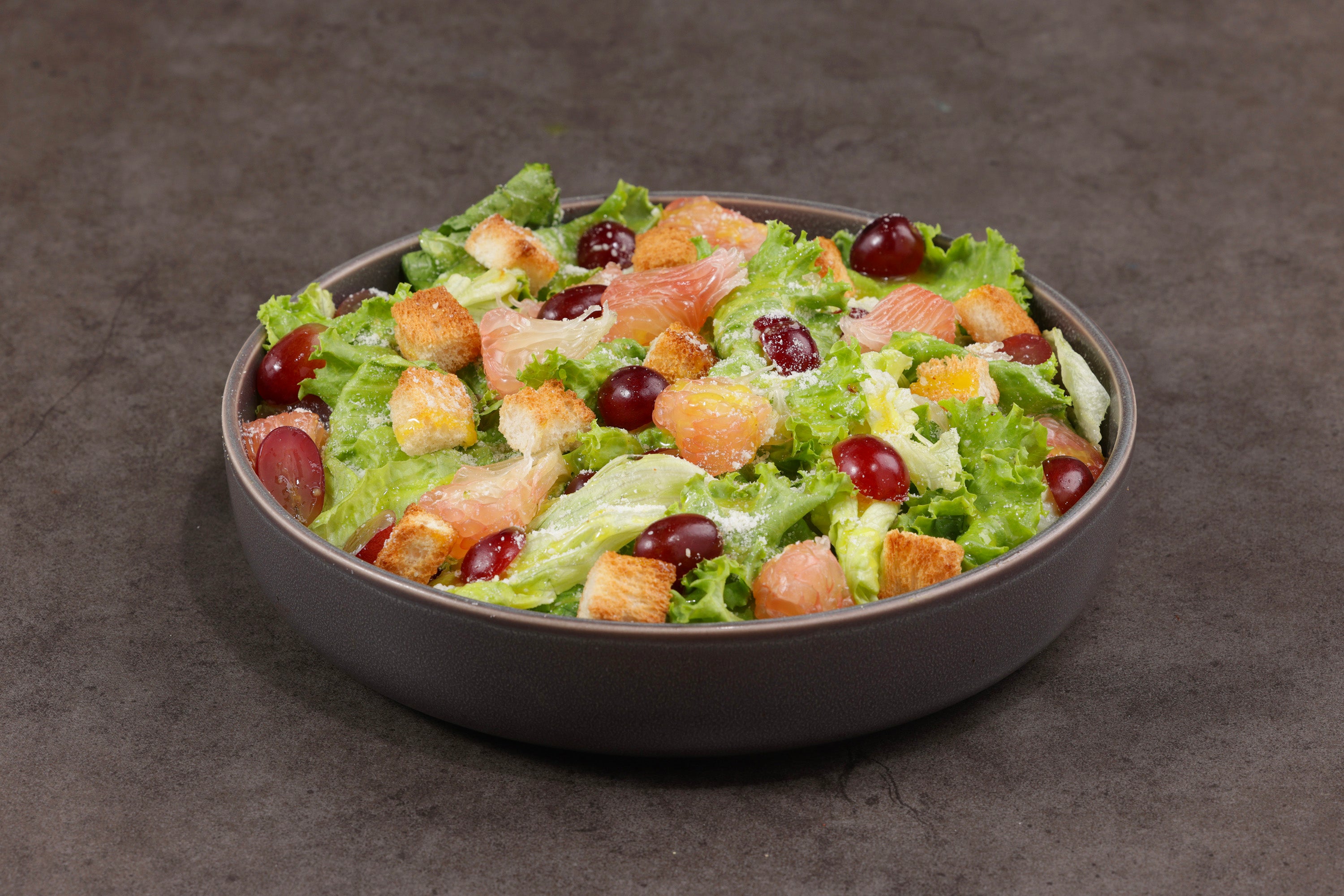


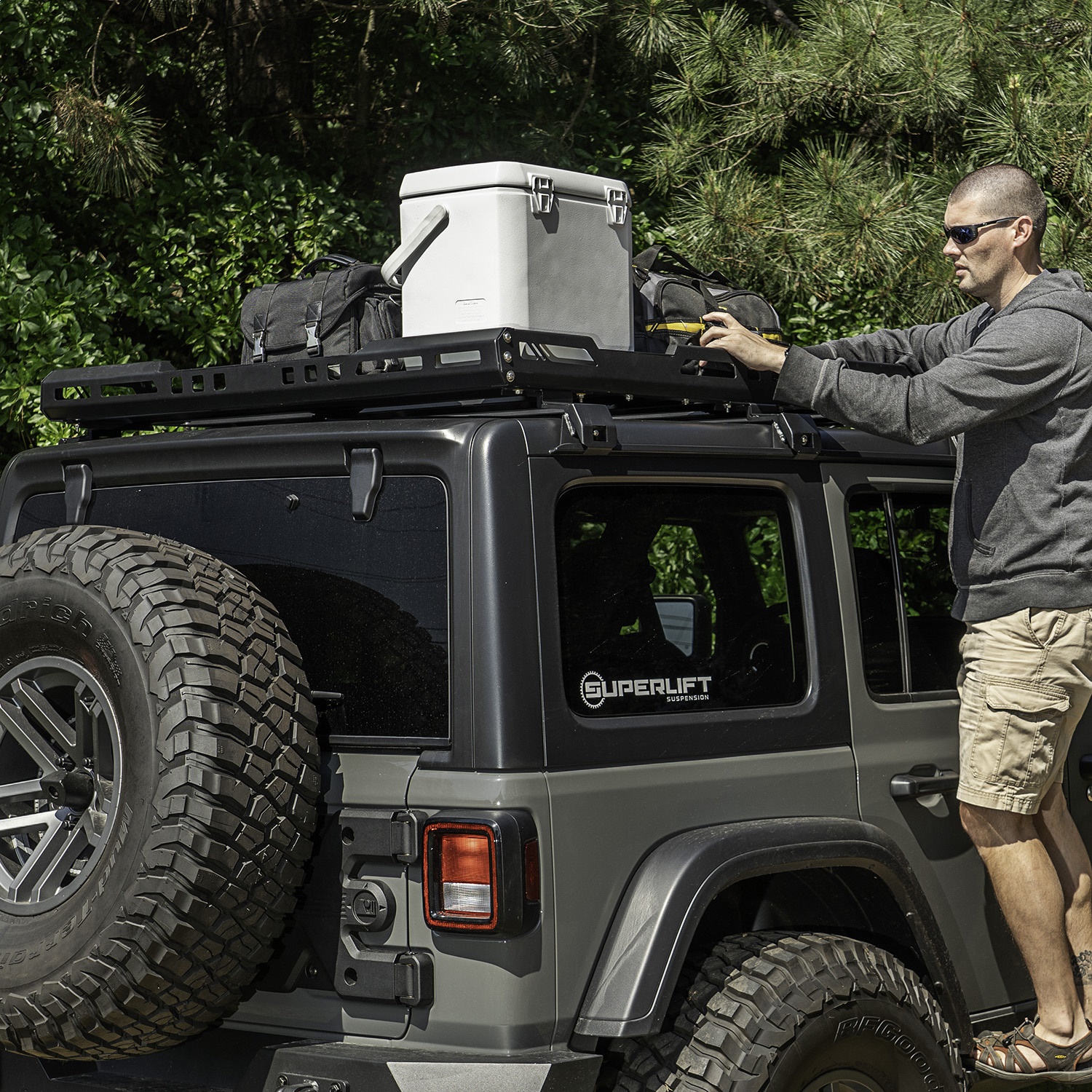

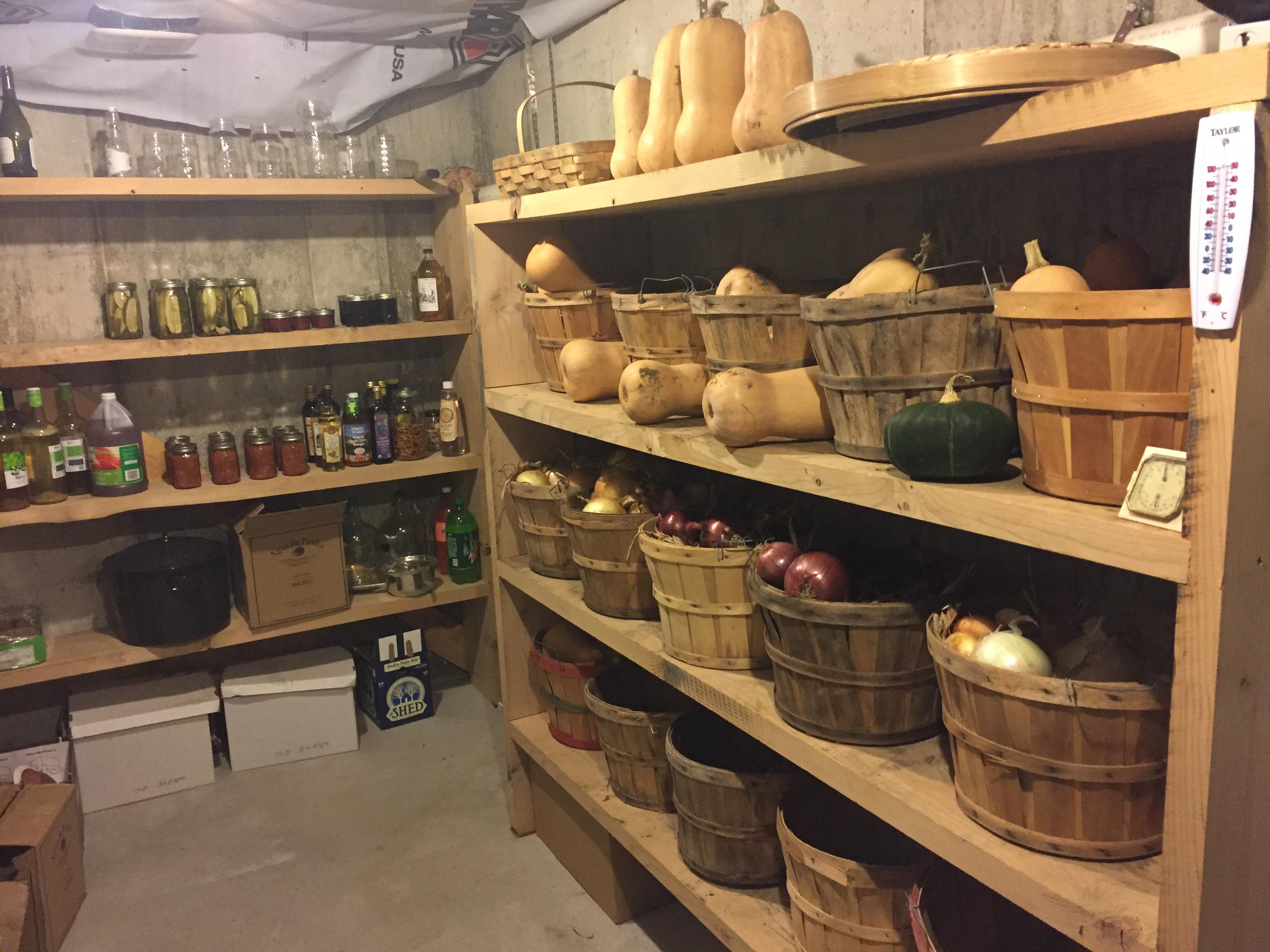




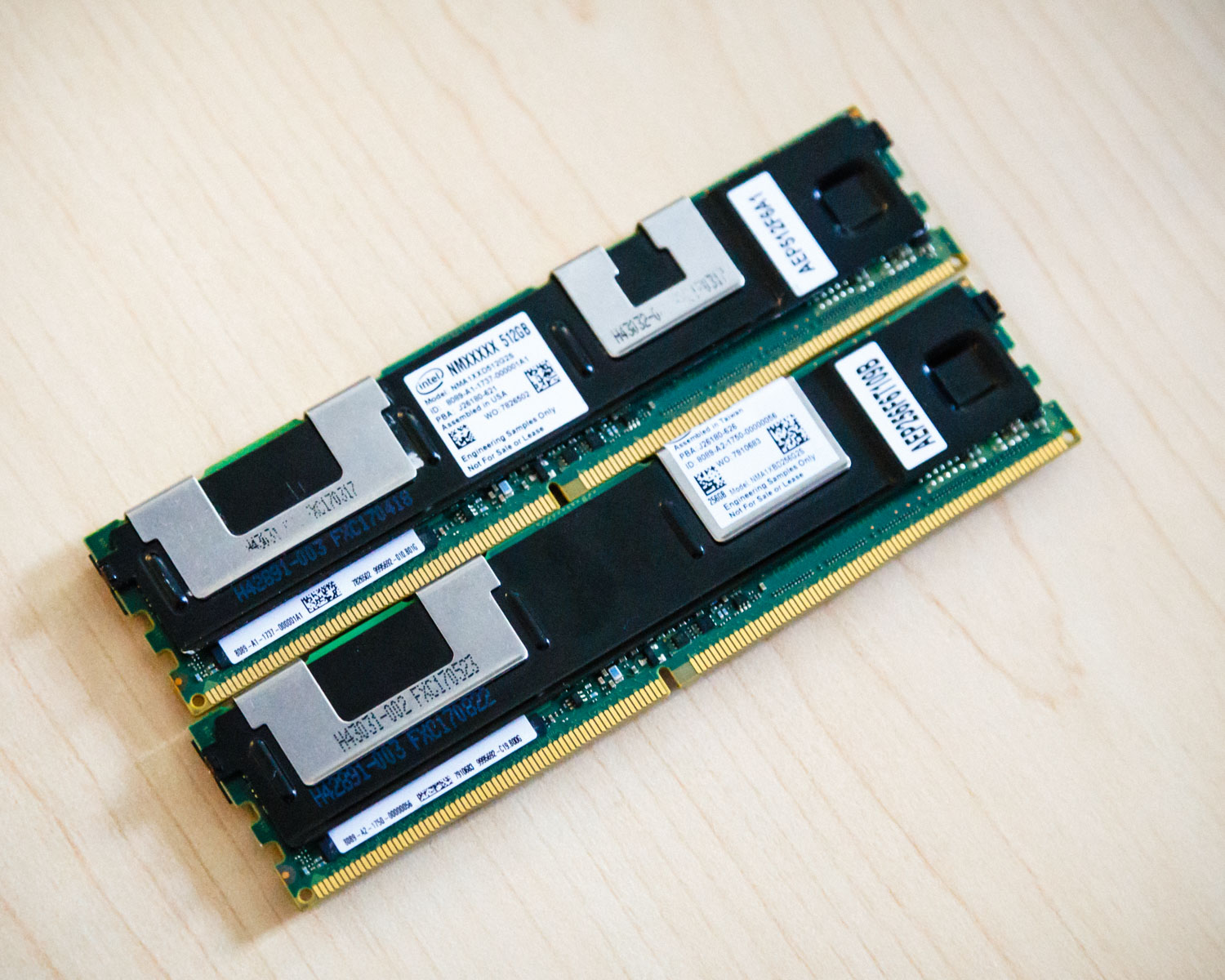
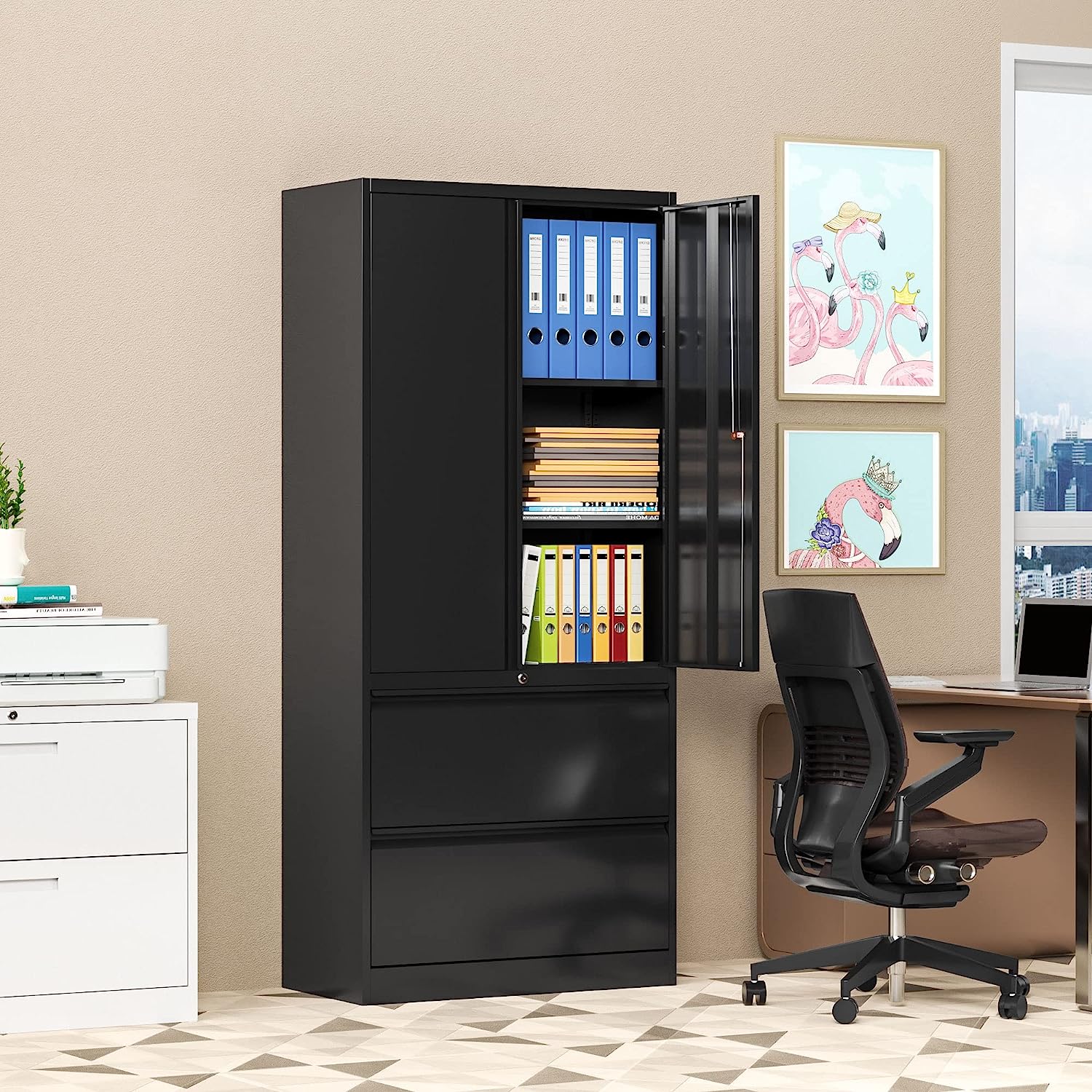

0 thoughts on “What Is Self Storage”